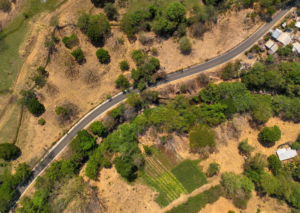
The Government of El Salvador is constantly monitoring weather conditions considering the increased rainfall across the country and the formation of a low-pressure system in the Atlantic Ocean. This situation, which has been confirmed as breaking news by the Ministerio de Medio Ambiente y Recursos Naturales has kept authorities on alert due to the potential risk of the system evolving into a depression or tropical storm in the coming days.

Environment minister Fernando López reported that this low-pressure system has a 30% probability of developing into a cyclone, and its movement is being closely monitored, as it could cross the southern Caribbean and reach Central America. “We will be providing daily updates on its development”, López stated, emphasizing the importance of keeping the population informed and prepared for any meteorological eventuality.
Regarding recent rainfall, the minister explained that several areas of the country have recorded considerable rainfall. In Sensuntepeque, 92 millimeters were reported, San Salvador, 70 millimeters, and La Unión, 79 millimeters. He also highlighted that in the last week, some areas have exceeded 200 millimeters of rainfall, such as Concepción de Oriente, with 225 mm, and Panchimalco, with 147 mm, which has also caused flooding in rivers such as the Goascorán.

Natural parks such as Montecristo and other protected areas will remain closed to the public due to the risk posed by the current weather conditions. He requests public understanding and strict adherence to the instructions issued by civil protection authorities and the Ministry of the Environment. This preventive measure is in addition to the constant monitoring carried out due to the increase in rainfall in the country and the formation of low pressure in the Atlantic Ocean.
Finally, it is noted that the winter season is not yet over, and a cold front is expected to arrive by the end of october, followed by northerly winds in november. The Government of El Salvador reaffirms its commitment to safeguarding the lives of salvadorans through an early warning system and preventive actions against natural phenomena, thus strengthening its response capacity to imminent climate threats.
Read also:







